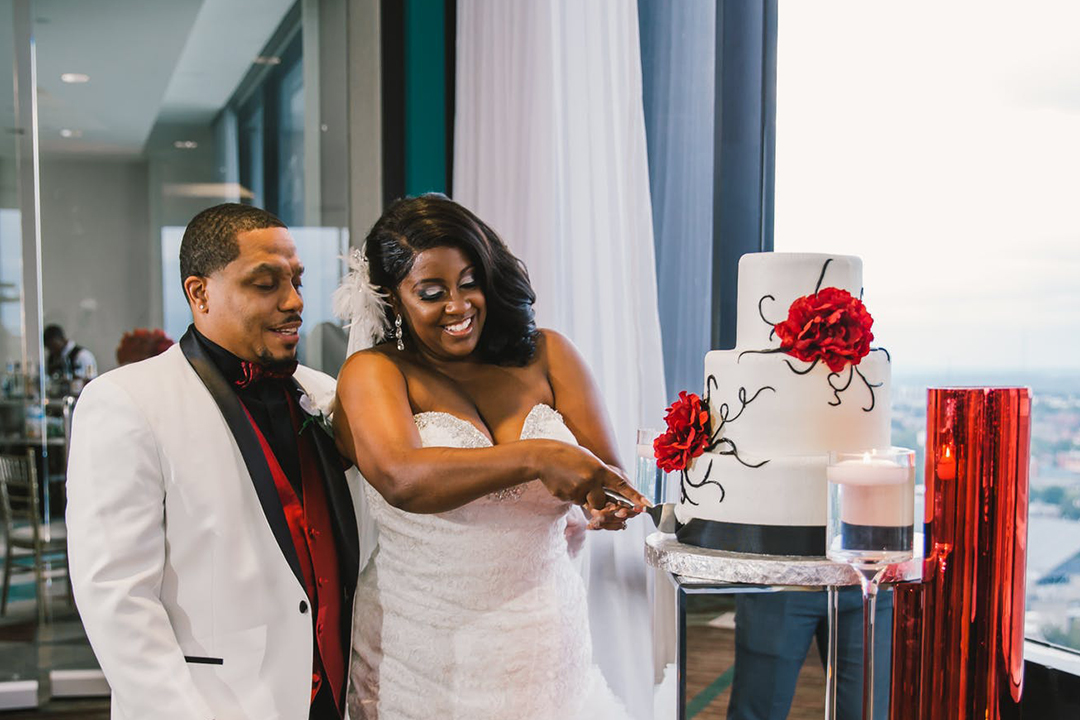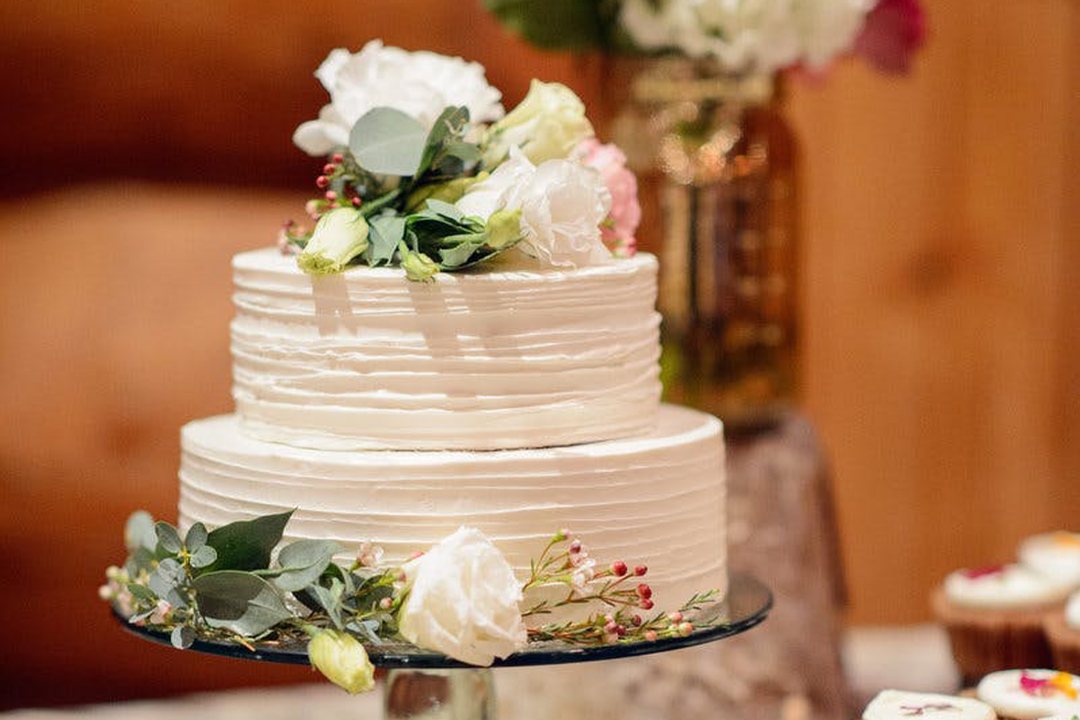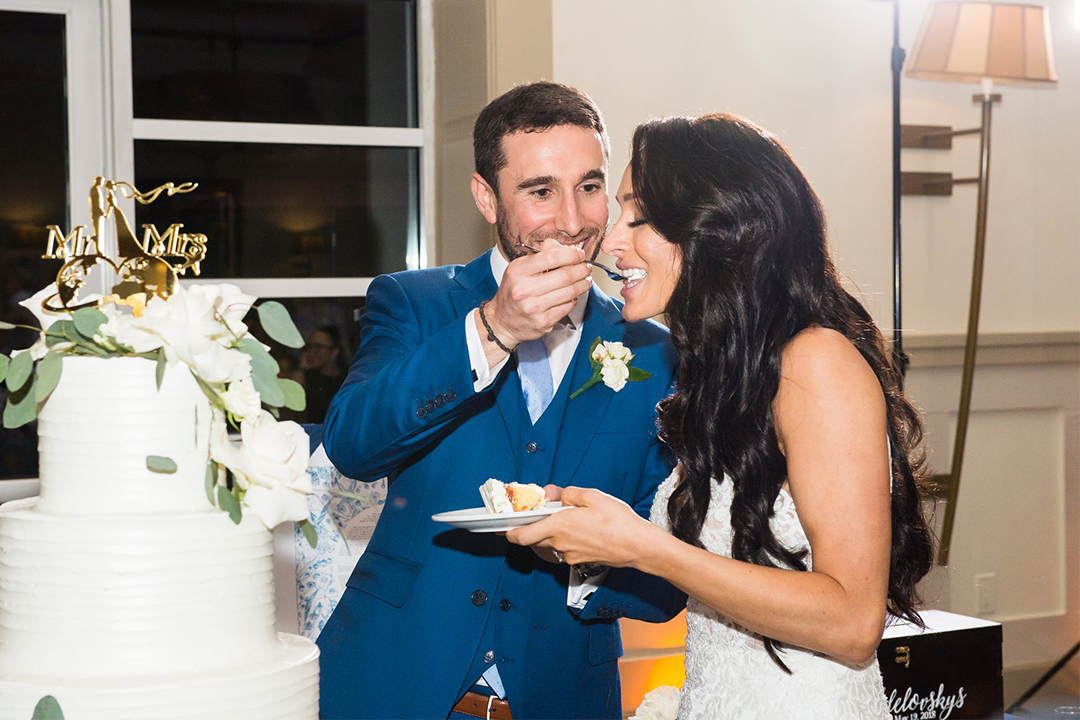- Expert advice/
- Wedding planning 101/
- Creating a budget/
- Who Pays for the Wedding Cake?
- Creating a budget
Who Pays for the Wedding Cake?
Don’t know who pays for the wedding cake? Our experts can help! Read on to learn more about wedding cake etiquette.
Last updated February 5, 2024

The bride’s parents traditionally pay for the wedding cake, along with the rest of the wedding reception costs, but you don’t have to follow this historical precedent. Many couples today may choose to pay for their own cake, or the two families may split costs for the cake and other desserts.
However you choose to pay for the wedding expenses, they can quickly add up. Make sure to choose a cake at a price point that you’re comfortable with, or go with an alternative to wedding cake, such as tiers of cupcakes or pies.
Below is a rundown of how to decide who pays for the wedding cake.
Traditional: Bride’s Family Pays for the Cake
If you want to follow the traditional pay structure for the reception, the bride’s family pays for the entire event. That includes the cake, floral arrangements, catering, décor, and entertainment.
Historically, this dates back to when the bride’s family would pay for the wedding, as well as a dowry to the husband’s family. Of course, modern families don’t need to follow this structure anymore. Today, the groom’s family may chip in for certain costs, such as the cake. (See below.)
Alternative: The Groom’s Family Pays for the Cake
The bride’s family paying for the entire reception is, of course, a major expense. The groom’s (or the other bride’s or groom’s) family may choose to contribute to different wedding-related costs. For example, they may contribute to the cost of the cake or they may take on the entire cost of the cake.
They can also offer to pay for other desserts or favors, such as a candy or cookie bar. Traditionally, the groom’s family also pays for the rehearsal dinner, the honeymoon, and the groom’s wedding attire.

Alternative: The Couple Pays for the Cake
Today, many couples choose to pay for a portion of or the entirety of the wedding reception themselves. Even if they can’t pay for the entire wedding reception, the couple can contribute to some costs, such as the cake.
Depending on your budget, you may need to adjust some of your expectations for what type of cake you can afford for your wedding day. Never expect your or your partner’s family to take on some (or all) of the wedding costs, but graciously accept if they do!
How Much Does the Wedding Cake Cost?
A wedding cake can cost up to thousands of dollars. Couples can expect to pay an average of $500, or at least $300 to $700 for a small wedding cake. The more elaborate the wedding cake design that you choose, the higher the cost that you’ll endure. For example, the more tiers you choose can increase the cost of a wedding cake, as does choosing a more complicated flavor and frosting. This is because wedding cakes are specially designed and created. There are also labor costs for the extensive time that it takes to make one wedding cake. Plus, there are delivery and set up costs that may increase the price, too.
*Read more about how much the cake costs and how to cut back on the price, here. *
How to Negotiate a Better Wedding Cake Price
Most bakers price the wedding cake per slice. Therefore, the more slices you need, the higher the price will be.
If you know that a huge cake doesn’t fit into your wedding budget, ask the baker if you can offer everyone half slices, or a half-serving instead. (Since cake is plated while your guests are out dancing, they likely won’t notice.)
You can also ask if your bakery can offer an alternative frosting, flavor of cake, or design that won’t be quite as much money, but will still taste great.
Some venues or vendors include the cost of the cake cutting in the overall price of the reception. This is another area where you may be able to negotiate to have it included, if it isn’t already. Make sure all cake-related costs are included in your contracts, and ask your vendors to clarify if something isn’t clear.

Alternatives to a Wedding Cake
Don’t despair if you don’t want to spend a large chunk of your budget on an elaborate wedding cake. Nowadays, many couples are finding fun alternatives to the traditional wedding cake, including:
- Tiers of cupcakes
- Pies
- Pizza pies
- Ice cream sandwiches
- A donut tower
- A “cheese” cake (made of assorted cheeses)
- Cake pops
- Tiers of macarons
Learn more about who should pay for each wedding cost, here.
- Expert advice/
- Wedding planning 101/
- Creating a budget/
- Who Pays for the Wedding Cake?
Find even more wedding ideas, inspo, tips, and tricks
We’ve got wedding planning advice on everything from save the dates to wedding cakes.